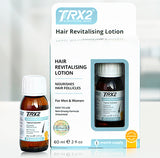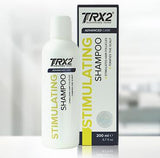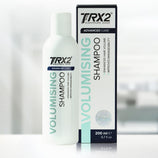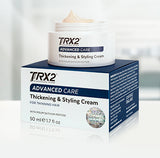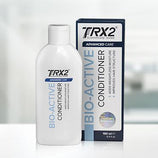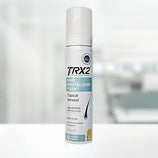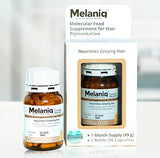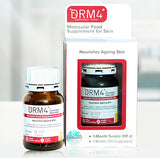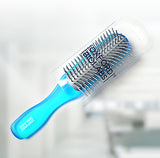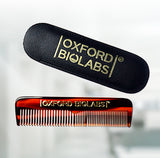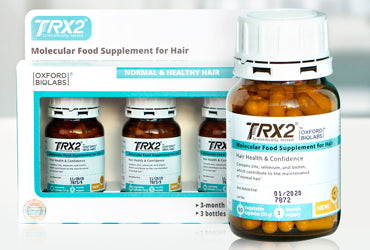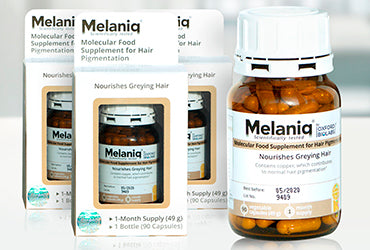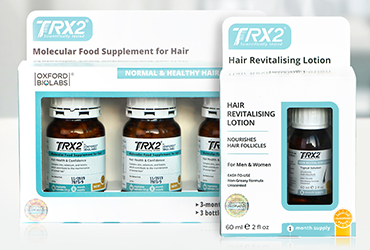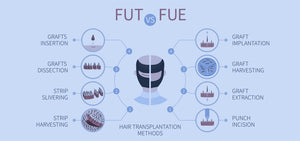How hair changes during menopause
What is ageing? It's a natural process that occurs in every walk of life and in every living being, small or large. Menopause isn't common in the animal world, but women generally begin to go into menopause in their late forties to early fifties. Can menopause-induced female hair loss be prevented? If so, what's the best way?
What occurs during menopause
At a given time in a woman’s life, menstrual periods stop indefinitely, and the ability to give birth is no longer possible. It is characterised by a reduction in the production of hormones. Typically, menopause occurs between 49 and 52 years of age. Age of onset can vary according to nationality. Early menopause can happen in those who have undergone surgery to remove the uterus and/or ovaries.
The symptoms associated with premenopause are what most women think of when they hear menopause. These symptoms include:
- Hot flushes, which are short bouts of increased sweating, and redness of the skin;
- Mood swings;
- Vaginal dryness;
- Trouble sleeping;
- Reduced sexual desire.
Menopause and hair loss
More research has been aimed at solving and diagnosing the problem of male pattern hair loss than female pattern hair loss (FPHL). Both female and male pattern hair loss are called androgenetic alopecia, although there is little evidence that this has to do with androgens (male hormones) in women. FPHL is the most common cause of hair loss in women, and can occur at any time, but most often begins at, or immediately after menopause.
Taking into consideration the psychological issues that go hand in hand with many suffering from hair loss, the addition of menopausal symptoms can be very difficult to overcome. Symptoms of depression, anxiety, low self-esteem, and even some antisocial behaviour have been associated with FPHL.
In a study of pre‐ and postmenopausal women without alopecia, menopausal status significantly influenced hair parameters, specifically hair growth rate, percentage of follicles in the anagen (growth) phase of the hair cycle, and hair diameter, most notably in the frontal region. Hair density decreased with age, but was not correlated with menopausal status. Analyses of hair amount using a model of hair density and hair diameters suggest that the impact of changing hair parameters is most notable in the mid‐forties for women.
Noticing more hair loss during and after menopause can be attributed to ageing, and nutritional deficiencies.
Are there natural supplements that target hair loss during menopause?
Soy Isoflavones and their powerful effects
Scientists have discovered that soy extracts can be a viable alternative to conventional hormone replacement therapy for women struggling with post-menopause. This is particularly relevant in regards to hair and the retention thereof, as these processes are controlled by hormones. Further research revealed that besides menopausal symptoms, these isoflavones might even add a potential benefit to the cardiovascular system. Studies also reported soy isoflavones to facilitate good bone health, an issue that is very relevant for postmenopausal women as declining estrogen levels lead to a reduction in bone density.
Flaxseed lignans for postmenopausal women
To improve efficacy, isoflavones from soy can be combined with extracts from flaxseed. These contain so called lignans, which have proven to be even more effective than isoflavones in influencing the estrogen metabolism in postmenopausal woman. Again, as hair follicles are subject to hormonal regulation this is a crucial factor in combating hair loss and thinning. A study with postmenopausal woman also indicated that flaxseed lignans may lead to a reduction in inflammation.
Minerals for hair growth
Magnesium and calcium are key minerals that are known to influence hair growth, with calcium concentrations in hair exceeding that of the blood serum 200-fold. Women are particularly exposed to calcium deficiency and if one isn’t getting enough vitamin D (which is needed for absorbing calcium), hair may fall out.
Vitamins for female health
Vitamin D, B12, and pantothenic acid (vitamin B5) have also been linked to the promotion and support of hair growth. This beneficial effect of B vitamins toward hair growth can be traced back to their ability to improve blood flow to and decrease the accumulation of cholesterol in the scalp and to provide protection from free radical damage.
Menopause hair loss explained in a video below:
Conclusion
Menopause is part of the natural ageing process. All women go through it, but that period of life can have lasting effects. Menopause and hair loss are linked and science is still catching up to ascertain exactly how this happens. Taking a naturally-based supplement that targets the menopausal symptoms together with nutrient deficiencies that cause hair loss is the optimal choice. This combination will help women regain confidence in themselves and their outward appearance.




